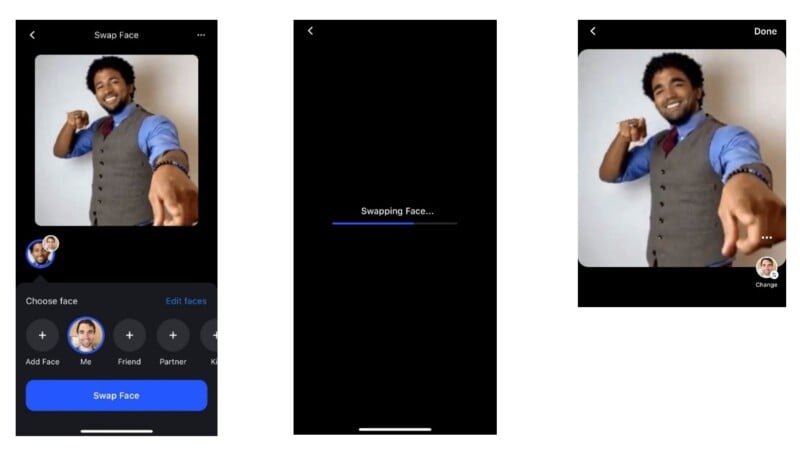AI Face-Swap App Reface is Sued for ‘Exploiting’ Photos of Celebrities
![]()
Viral face-swap app Reface is facing a lawsuit for commercially exploiting photos of celebrities.
The Reface app uses artificial intelligence (AI) to create hyper-realistic face swaps. The app, which has over 250 million users worldwide, allows anyone to digitally paste a photograph of any individual’s face onto video clips of famous people.
It effectively enables users to create deepfake videos with ease and reimagine themselves as anything from Marvel superheroes to their favorite pop stars.
According to National Law Review, the Reface app has now been hit with a proposed class action complaint by a reality TV cast member who claims the app is commercially exploiting his and thousands of other celebrities’ images and likeness without their consent.
Kyland Young, a finalist on the show Big Brother filed a lawsuit in April in the U.S. District Court for the Central District of California alleging that the Reface app violated the state’s right of publicity law by featuring photographs and videos of famous actors, athletes, and musicians whose faces can be swapped out by the app’s users.
![]()

The complaint alleges violations of the class members’ rights under the California Right of Publicity statute, which states that “[a]ny person who knowingly uses another’s name, voice, signature, photograph, or likeness, in any manner… for purposes of advertising or selling, or soliciting purchases of… services, without such person’s prior consent… shall be liable for any damages sustained by the person or persons injured as a result thereof.”
In the U.S., there is currently no federal legislation to protect against celebrities’ or any individual’s images being used without their deepfake technology.
Generative AI is Changing Intellectual Property Rights
Young’s lawsuit is among the first cases focusing on AI-generated imagery, which could implicate a broad gamut of conflicting intellectual property rights. Generative AI makes it possible to create a large number of potentially infringing — but not identical — new images and videos with one technology.
In January, a group of artists filed a class-action lawsuit against AI image generators Stable Diffusion and Midjourney. They accused the AI image generators of being “a 21st-century collage tool that remixes the copyright works of millions of artists whose work was used as training data.”
Meanwhile, in February, Getty Images sued AI image generator Stable Diffusion for up to $1.8 trillion, claiming it had stolen over 12 million of its copyrighted photos.
Image credits: Photos via Reface app and court documents.